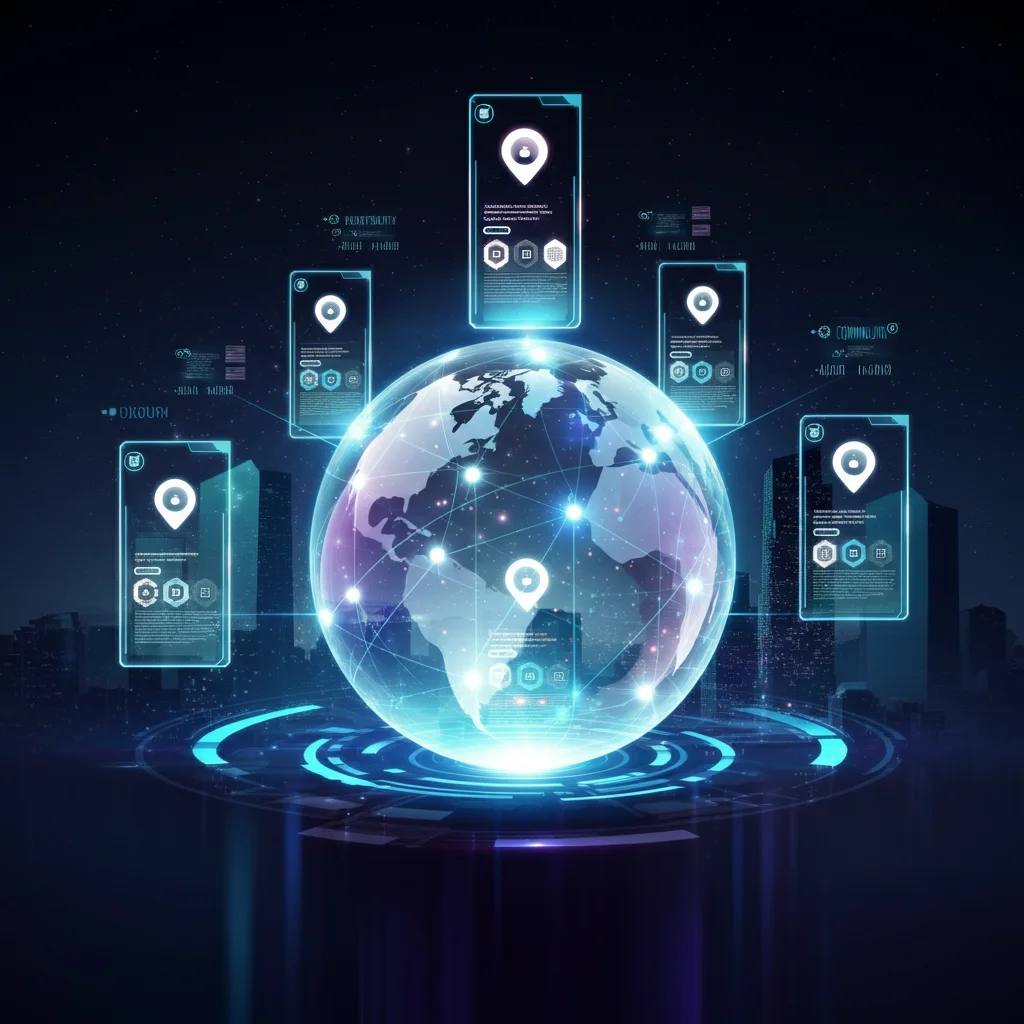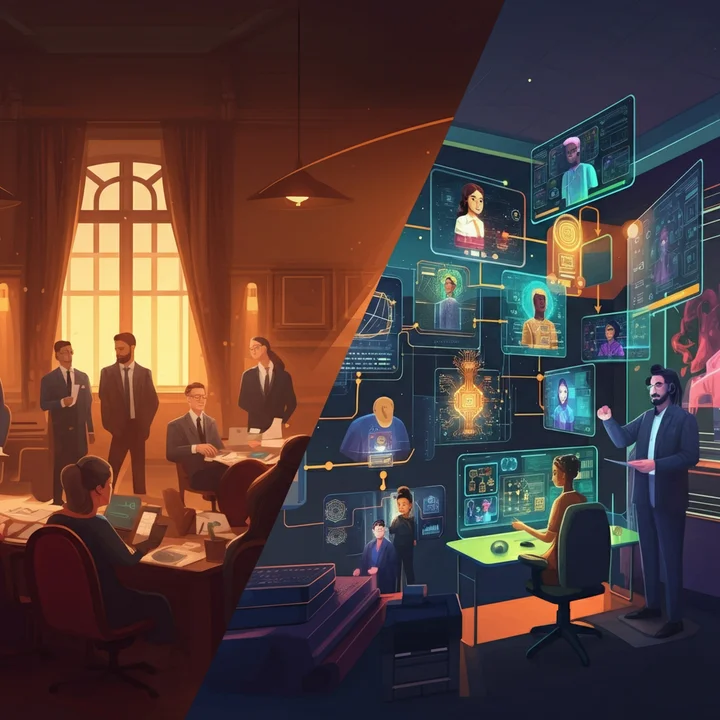Decentralized Autonomous Organizations, or DAOs, have been making waves in the tech and financial spaces, capturing the attention of blockchain enthusiasts, investors, and even regulators. But what exactly is a DAO, and why is it so revolutionary?
This blog post will break down the concept and purpose of DAOs, explore their history and evolution, explain how they work, and provide examples of notable DAOs. We’ll also discuss their benefits, challenges, and the current legal landscape, as well as how you can get involved.
If you're curious about the game-changing potential of DAOs or just want to understand the basics, keep reading!
What Is a DAO and What Is Its Purpose?
A DAO, or Decentralized Autonomous Organization, is a digital organization that operates without centralized leadership. Instead of being governed by individuals or a traditional hierarchy, DAOs are managed collectively by their members, with rules and processes embedded in smart contracts on a blockchain.
The primary purpose of a DAO is to enable individuals across the globe to collaborate and make decisions autonomously, without needing to rely on middlemen or central authorities. This structure ensures transparency, reduces bureaucracy, and fosters a community-driven approach to decision-making and resource allocation.
At their core, DAOs promote decentralization, transparency, and global accessibility, which aligns with the broader ethos of blockchain technology.
History and Evolution
The concept of a decentralized organization isn’t new, but DAOs gained prominence with the advent of blockchain technology. The first major DAO, simply called "The DAO," launched in 2016 on the Ethereum blockchain. It was designed as a decentralized venture capital fund, aiming to allow investors to fund projects collaboratively.
However, The DAO faced a setback due to a vulnerability in its smart contract, which resulted in a $60 million exploit. This incident led to the infamous Ethereum blockchain split into Ethereum (ETH) and Ethereum Classic (ETC).
Despite this rocky start, DAOs evolved significantly over time, fueled by improvements in blockchain security, smart contracts, and governance mechanisms. Today, DAOs are thriving and are applied in numerous areas, from managing decentralized finance (DeFi) protocols to funding artistic endeavors and supporting social movements.
How Do DAOs Work?
A DAO operates through a combination of smart contracts, governance mechanisms, and blockchain technology. Here’s how they function step by step:
1. Smart Contracts
Smart contracts are the foundation of a DAO. These self-executing contracts contain the rules and protocols for the organization, written as code on a blockchain. They define how proposals, voting, and decisions are handled, and once deployed, they execute automatically.
For example, if a vote is held and the majority decides to allocate funds, the smart contract will release the funds as per the decision without any manual intervention.
2. Governance and Voting Systems
Members of a DAO usually hold governance tokens, which empower them to participate in decision-making. Proposals are submitted for initiatives or changes, and members vote on these proposals using their tokens.
Voting systems may vary, including mechanisms like:
Majority rule voting
Quadratic voting (to prevent voting power concentration)
Weighted voting, where token holdings influence vote weight
3. Treasury and Funds
DAOs typically manage a shared treasury, holding funds in cryptocurrencies. Only collectively approved decisions allow these funds to be spent, ensuring transparency and accountability.
Examples of Well-Known DAOs
While DAOs span a wide range of industries, here are some of the most prominent ones:
MakerDAO
One of the earliest and most successful DAOs, MakerDAO governs the Maker Protocol, which powers the DAI stablecoin. It allows holders of the governance token (MKR) to vote on protocol decisions, such as interest rates.
Aragon
Aragon enables users to create and manage their own DAOs. It provides a platform and tools to help organizations govern themselves autonomously.
Uniswap
Uniswap, a decentralized finance protocol, operates under a DAO system. UNI token holders influence decisions regarding upgrades, fee structures, and fund allocations.
Friends With Benefits (FWB)
FWB is a community DAO aimed at creatives, thinkers, and technologists. Members gain access to exclusive events, content, and collaborations through governance tokens.
ConstitutionDAO
This DAO aimed to buy an original copy of the U.S. Constitution at auction. Although unsuccessful in its bid, the DAO showcased the potential for collective, coordinated global efforts.
Benefits and Challenges of DAOs
Benefits of DAOs
Transparency
All transactions and decision-making are publicly recorded on the blockchain, reducing corruption and increasing trust.
Inclusivity and Accessibility
Anyone with internet access can participate in a DAO by purchasing or earning governance tokens, making it globally inclusive.
Community-Driven Approach
Decision-making power rests with the members, ensuring their collective voice shapes the organization’s direction.
Efficiency
By removing intermediaries and automating processes through smart contracts, DAOs save time and reduce operational costs.
Challenges of DAOs
Security Vulnerabilities
Smart contract bugs or exploits can have catastrophic consequences, as seen in the case of The DAO in 2016.
Coordination Issues
Making decisions collectively can be slow, especially with thousands of members involved.
Legal Uncertainty
DAOs operate in an ambiguous legal landscape in many regions, posing regulatory challenges.
Whale Influence
Token-weighted voting often means that those with more tokens wield greater decision-making power, potentially undermining decentralization.
Legal and Regulatory Landscape
The legal classification of DAOs remains unclear in many countries. Some jurisdictions, such as Wyoming in the United States, have started giving DAOs legal recognition, allowing them to register as LLCs. This development legitimizes DAOs to operate in traditional business frameworks while protecting their members.
The primary legal questions revolve around liability, accountability, and taxation. However, as DAOs gain traction, we are likely to see more regulatory frameworks that balance innovation with compliance.
How to Participate in a DAO
Joining a DAO is simpler than it might seem:
Research DAOs
Identify DAOs that align with your values or areas of interest. For instance, if you're into DeFi, look at Uniswap or MakerDAO.
Acquire Governance Tokens
Most DAOs require you to own their governance token to participate. You can buy these tokens on crypto exchanges.
Engage in the Community
Get involved in discussions on platforms like Discord or forums, and contribute where you can.
Vote and Propose Ideas
Participate in votes and, if allowed, propose your own ideas or initiatives.
You don’t have to be an expert in blockchain to join a DAO. Many communities welcome newcomers and provide educational resources to help you get started.
Unlock the Potential of DAOs
DAOs are reshaping traditional organizational structures and showing the world how decentralization can enhance cooperation and creativity. From financial protocols to community projects, the power of DAOs lies in their ability to connect people through shared values and transparent systems.
If you're ready to explore this exciting frontier, take the first step today. Learn more about how blockchain and Web3 tools can help revolutionize the way you engage with the world.

